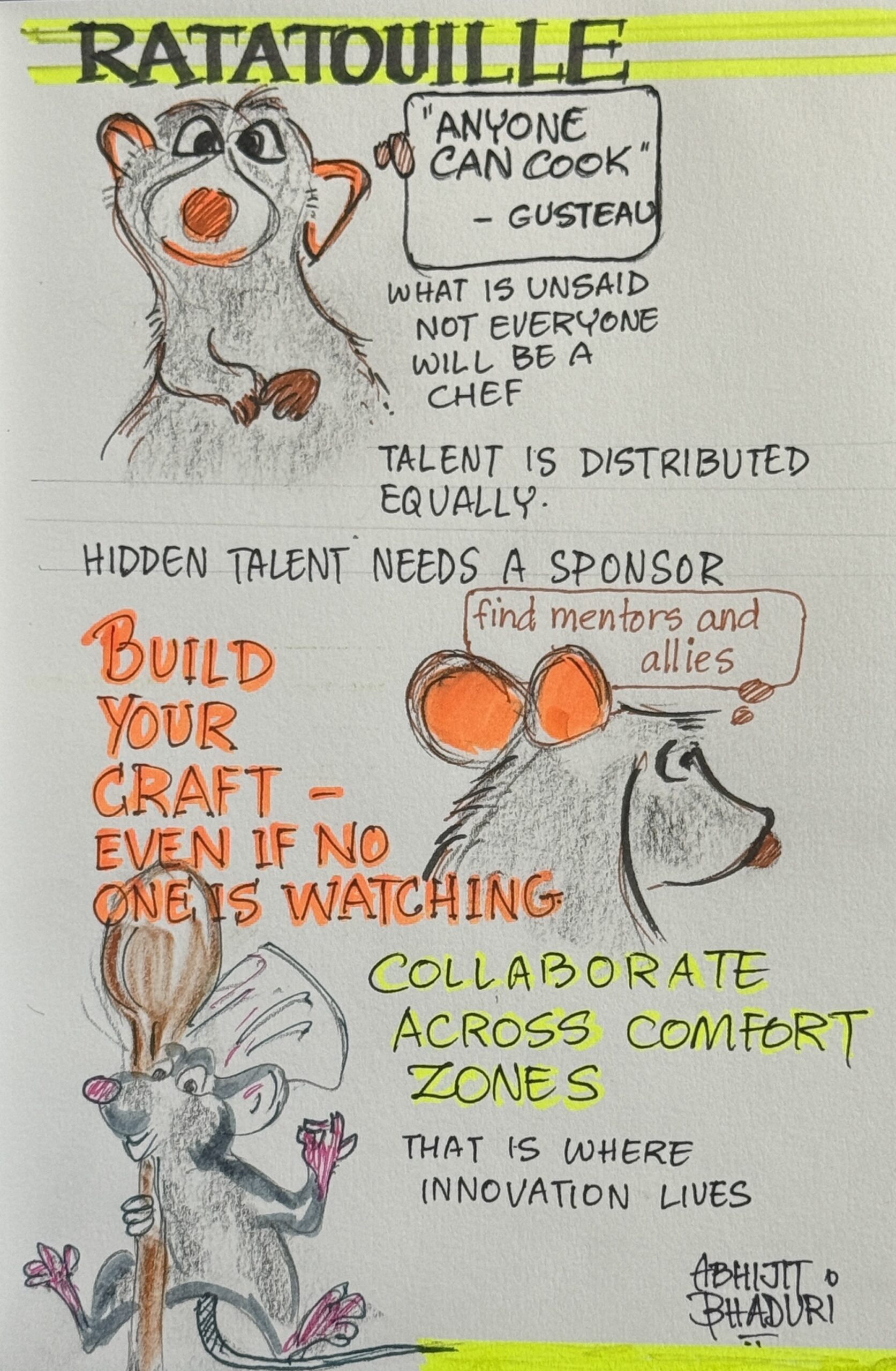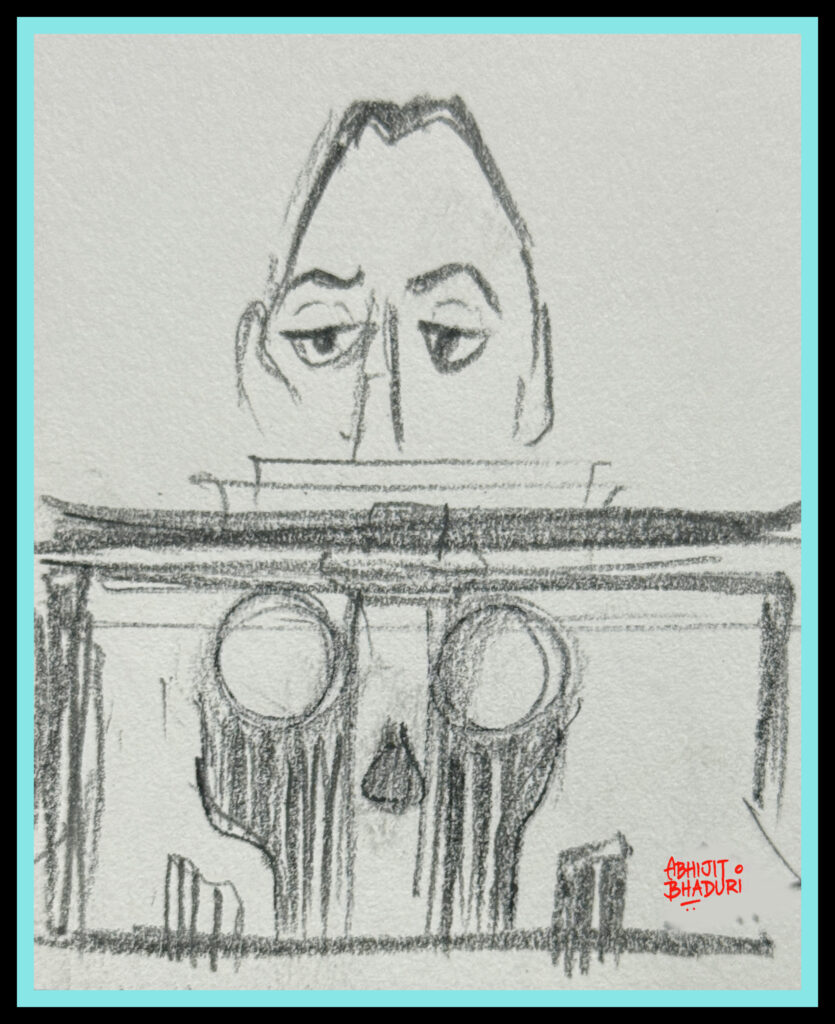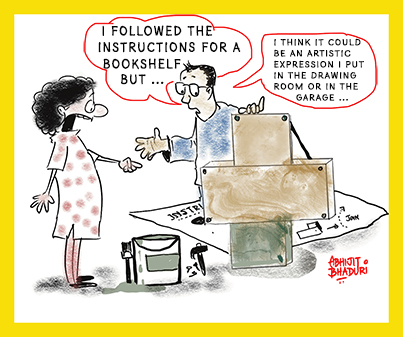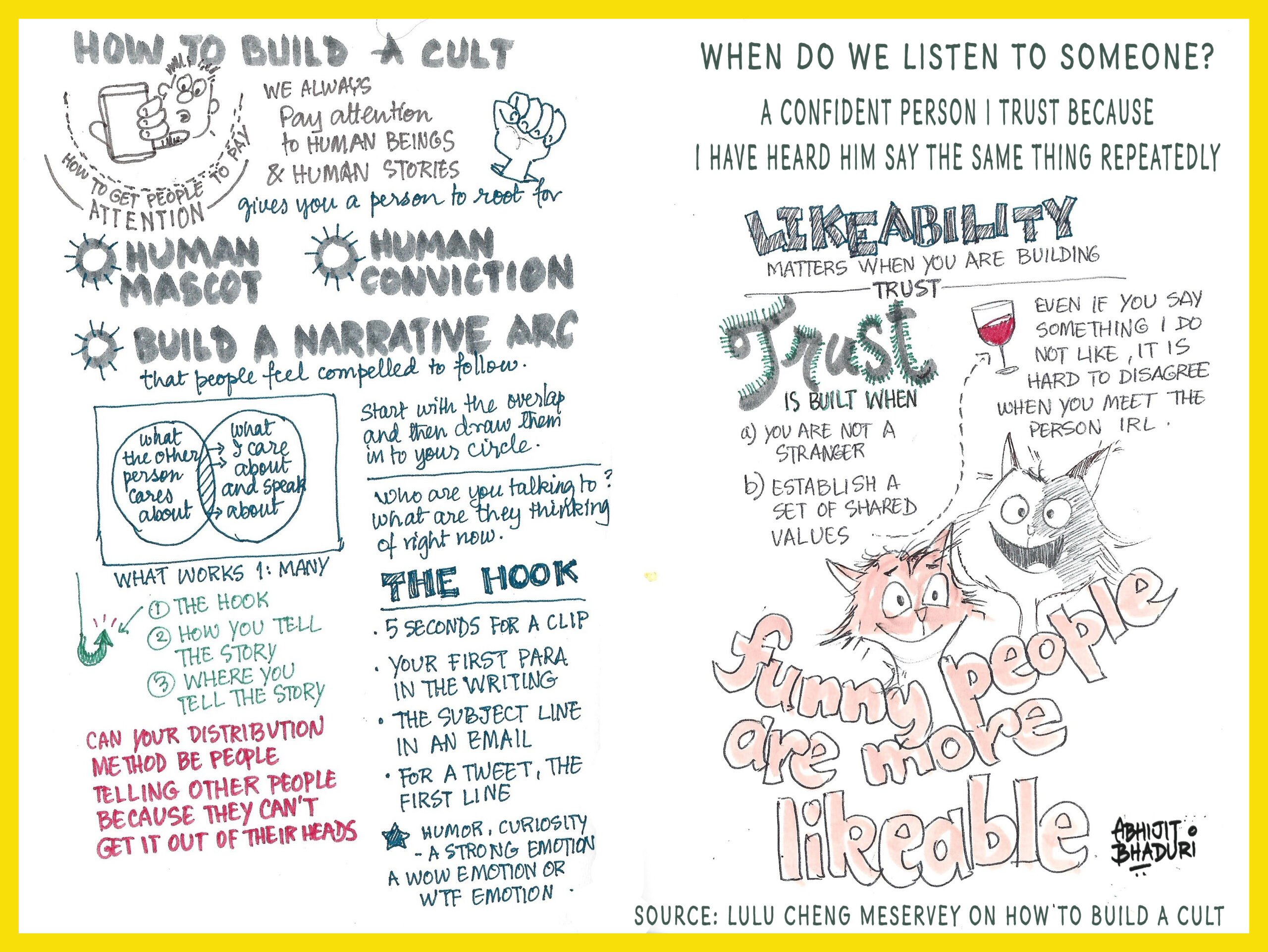Ratatouille is a movie about career identity, hidden potential, mentorship, gatekeeping, and creative risk.

The film that took seven years to make
I watch Pixar movies especially on long flights. I was traveling back from Peru. This time I watched Ratatouille.
Ratatouille is a traditional French vegetable stew—simple, rustic, and often underestimated, much like the film’s unlikely hero, a rat named Remy who dreams of becoming a chef. The title is both literal and symbolic: it refers to the dish Remy masterfully reinvents, proving that greatness can come from the most unexpected places. At its heart, the movie is a celebration of hidden talent, creative passion, and the courage to pursue your calling—even when the world says you don’t belong. I am just a sucker for stories about underdogs.
Brad Bird was fresh off “The Incredibles.” Pixar gave him freedom to take creative risks, which parallels the idea of hiring for mindset, not just resume—a theme relevant in career pivots and innovation roles.
Every dish in the movie was created and styled by real chefs.
Pixar animators were trained at a real culinary school to understand technique and authenticity. A powerful example of learning by immersion—the best way to learn a new craft from a practitioner’s point of view.
The food critic Anton Ego’s office is shaped like a coffin (haha)
His typewriter is shaped like a skull. There is a Reddit thread where I had first read this piece of trivia and made it a point to notice it. The name of the critic is Anton EGO. The skull and the name symbolically tell us what kills creativity.

Talent can come from anywhere—opportunity, not so much.
Remy doesn’t have a resume, a mentor, or even the “right species”—but he’s the best chef in the kitchen. Ratatouille reminds us that brilliance often hides in unexpected places, and sometimes all it takes is someone willing to open the door.
You don’t need a title to create something extraordinary
Remy can’t show his face, Linguini fumbles with self-doubt, and Colette fights to be taken seriously. Still, they find ways to grow, adapt, and show up. It’s a quiet nod to those doing excellent work without credit—and a reminder that skill is built long before recognition arrives.
Innovation often starts where the rules end
A rat cooking in a fine-dining kitchen makes no sense—until it does. Unlikely partnerships, imperfect backgrounds, and unfiltered voices are often where the best ideas begin. The real lesson? Don’t gatekeep greatness.


